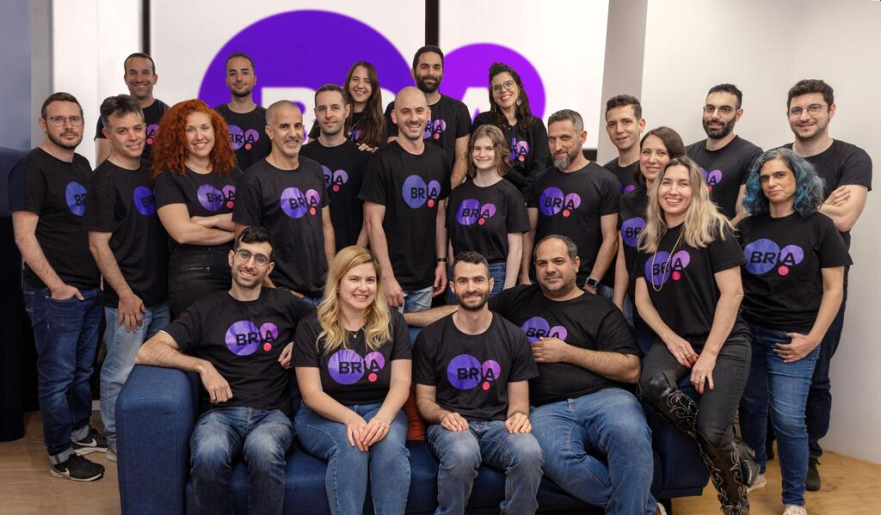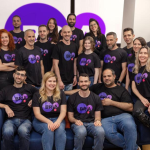Getty-backed AI startup BRIA raises $24M in Series A funding for ‘responsible’ AI image generation

Israel-based generative AI startup BRIA has secured $24 million in Series A funding to expand its responsible and ethical visual generative AI platform. The round was led by GFT Ventures, Intel Capital, and Entree Capital, along with support from notable backers like Publicis Groupe and Getty Images.
The Getty-backed BRIA said in a press release that it will use the fresh cash infusion to expand its global footprint, enhance generative capabilities, such as text-to-video features, and strengthen its open platform for developers.
Other notable backers in this funding round include Samsung Next, IN Venture (Sumitomo Corporation, Japan), Atinum Investment (South Korea), Z Venture Capital (LY Corporation, Japan), Mirae Asset Venture Investment, and J-Ventures, among others.
While the investment amount is relatively modest in the competitive AI landscape, BRIA stands out as an early example of how licensing agreements can navigate the contentious issues surrounding the use of copyrighted content in training generative AI models.
BRIA’s unique license-only approach, fueled by its partnership with Getty and access to over a billion licensed images, mitigates the risk of trademark issues and other potential complications in its generated visuals. This approach has resonated well with advertising, marketing, and media customers, including Publicis.
In response to growing concerns from music labels, artists, and content owners regarding unauthorized content usage, BRIA emphasizes its license-only approach as a proactive measure to mitigate risks associated with trademark infringement and other contentious elements in generated images. This approach has garnered attention from sectors such as advertising, marketing, and media, with clients including Publicis.
BRIA founder and CEO Yair Adato highlighted the company’s commitment to responsible and commercially viable practices. “With the rapid adoption of generative AI in commercial operations, and as 70% of CEOs agree with the need to act urgently on generative AI to avoid giving their competitors a strategic advantage, it is vital that final outputs are developed from ethical, unbiased, and licensed sources without holding the foundation models in a walled garden,” Adato said.
He added, “It is essential that companies are equipped with generative AI capabilities as part of their core technology stack so they can seamlessly scale their operations and ensure they own intellectual property and data. This is precisely what BRIA is providing to any company using our licensed-sourced platform and we are thrilled with this opportunity to empower more businesses with the ability to generate AI responsibly.”
Unlike images generated by other companies in the space, BRIA utilizes visuals sourced from 18 stock providers, including Getty, Alamy, SuperStock, and Envato, to train its model. The company operates on a revenue-sharing model, charging customers for platform access and distributing revenue to the photo companies.
In a bid for transparency, each generated image by BRIA showcases the original licensed images that contributed to its creation, along with a breakdown of their respective contributions. CEO Adato draws a parallel between BRIA’s approach and the Spotify model, emphasizing the importance of compensating content owners in the AI era.
Adato also underscores the significance of controlled training, highlighting its role in preventing the creation of misleading visuals that could harm brands or influence political events. For instance, BRIA’s model lacks the capability to generate an image of U.S. President Joe Biden because it has not been trained on his likeness. This cautious approach aims to maintain integrity and responsibility in the deployment of generative AI technologies.
Commenting on the funding, Jay Eum, Founding Managing Partner at GFT Ventures, said: “We are completely behind BRIA’s mission to redefine visual generative AI, focusing on a transparent, responsible, and secure process for developing content while providing enterprises with a stronger value proposition in this field. BRIA’s technology helps businesses avoid the biases and legal landmines that have wounded high-profile organizations attempting to generate AI-based material without knowledge of its origins or without compensating the creators. BRIA’s solution, which only uses licensed datasets, and pays artists for every image used, is the gold-standard generative AI platform for commercial use.”
Meanwhile, Getty Images, a longstanding supporter of BRIA since 2022, has been actively involved in discussions surrounding the use of training data. Notably, Getty pursued legal action against Stability AI last year for allegedly utilizing its photos without proper licensing, emphasizing the significance of respecting intellectual property rights in the AI domain.
Furthermore, Getty’s collaboration with chip manufacturer Nvidia underscores the industry’s evolving landscape, where major players like Adobe and Shutterstock also offer AI image generation services. Despite competition, these companies recognize the importance of licensing agreements, as evidenced by their partnerships with Nvidia for image generation services utilizing licensed visuals.




